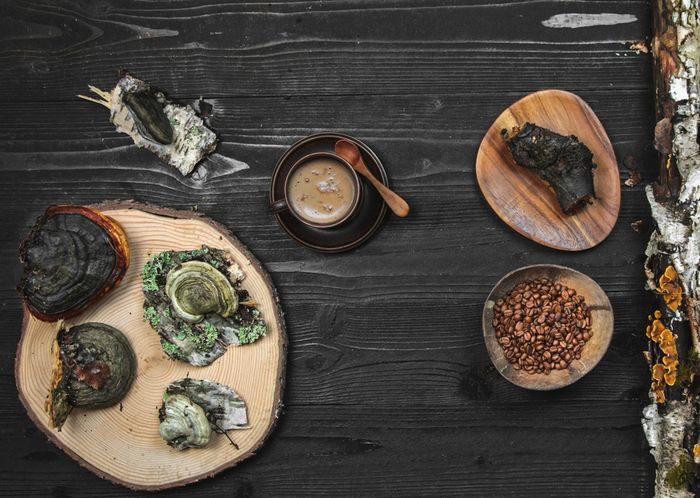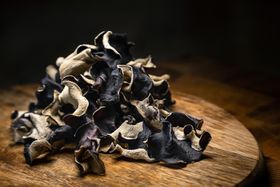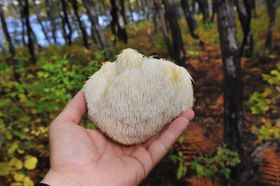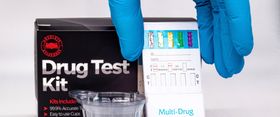Chaga vs Reishi: Benefits, Side Effects, Similarities, and Differences
Updated April 14, 2023.

Chaga and Reishi are 2 types of functional mushrooms that are similar in chemical composition and beneficial properties. Whereas many functional mushrooms can be cooked and eaten in dishes, Chaga and Reishi both have fibrous, woody textures that limit their use to extracts, teas, and supplements.
Aside from that, how do Chaga and Reishi mushrooms compare?
Chaga vs Reishi: Comparing the Beneficial Similarities
Though different, Chaga and Reishi mushrooms share many similar benefits that are virtually indistinguishable from each other. The most popular ones are discussed below.
Anti-cancer and Anti-tumour Properties
Both Chaga and Reishi mushrooms seem to have similar degrees of anticancer and anti-tumour properties, as noted by these two studies:
The difference in cancer-fighting ability is how these mushrooms combat cancer aside from their direct anti-tumour effects. For Reishi, researchers believe it has something to do with the stimulation of white blood cells, whereas Chaga mushrooms are high in antioxidants (particularly triterpene, a potent cancer-killing antioxidant).
Immune-boosting Properties
Additionally, aside from their anticancer capabilities, both Chaga and Reishi mushrooms are beneficial for the immune system, though there is some debate about which is better. Reishi mushrooms contain higher levels of polysaccharides, but Chaga mushrooms are better anti-inflammatories. As such, it depends largely on the reasoning behind a sought-after boost to the immune system.
Heart and Blood Sugar Benefits
A final similarity between these two mushrooms is their supposed benefit to blood sugar levels and the balance of good and bad cholesterol, as noted by the following studies:
Chaga vs Reishi: Comparing the Beneficial Differences
Despite their similarities, there are a few factors that each mushroom is comparatively better at.
What Does Reishi Mushroom Do Better?
Many of the benefits of Reishi mushrooms that sets them apart from other mushrooms are located in the brain.
For example, Reishi is often revered for its ability to alleviate symptoms of many mood-related disorders. A study looked at the effects of Reishi mushroom extracts on a condition known as neurasthenia (a medical condition characterised by fatigue, headaches, irritability, and emotional disturbance). Researchers found that those given Reishi mushroom experienced a significant improvement in quality of life over those that received a placebo.
The same is true for Reishi's ability to reduce symptoms of stress, anxiety, and depression.
Finally, Reishi mushrooms also promote brain health and cognitive functioning through neurogenesis, as noted by this study.
What Is Chaga Mushroom Good For?
One area that Chaga exceeds in over Reishi is its ability to reduce inflammation and oxidative stress.
Research has shown that Chaga is a potent anti-inflammatory. Not only can this benefit many inflammatory conditions, like asthma, it also makes them beneficial for inhibiting inflammatory cytokines released during allergic reactions.
Aside from this, research has also shown Chaga to be effective in reducing oxidative stress. This makes Chaga the more effective mushroom for skincare as the accumulation of oxidative stress can lead to cell and DNA damage, which is a contributing factor to the degenerative effects of aging.
Chaga vs. Reishi: Comparing the Side Effects
Comparing the potential side effects of Chaga and Reishi mushrooms is far more difficult than the benefits due to the vastly limited research on the topic. Technically, more studies have shown side effects in Reishi than in Chaga, but only a few studies have actually noted the side effects from Reishi mushrooms, while none at all have looked at the side effects of Chaga. Additionally, it is unclear if the side effects reported from Reishi mushroom use were caused by the mushroom itself or improper extraction into a powdered form. The participants had previously used other forms of Reishi without experiencing any side effects.
It also doesn't appear that either mushroom is more likely to cause side effects than the other. They typically only manifest when too much Chaga or Reishi is consumed, or if the individual has a preexisting mushroom or mould allergy, and are fairly restricted to gastrointestinal problems.
Which Is Better: Chaga or Reishi?
Unfortunately, there isn't a definitive answer to this question, as it depends entirely on your reason for wanting to start using the mushroom. Compare the specialised benefits of each to make an informed decision. Additionally, consider using Chaga and Reishi together to potentially compound the benefits of each. Stop use immediately in the event of side effects and consult a doctor.







